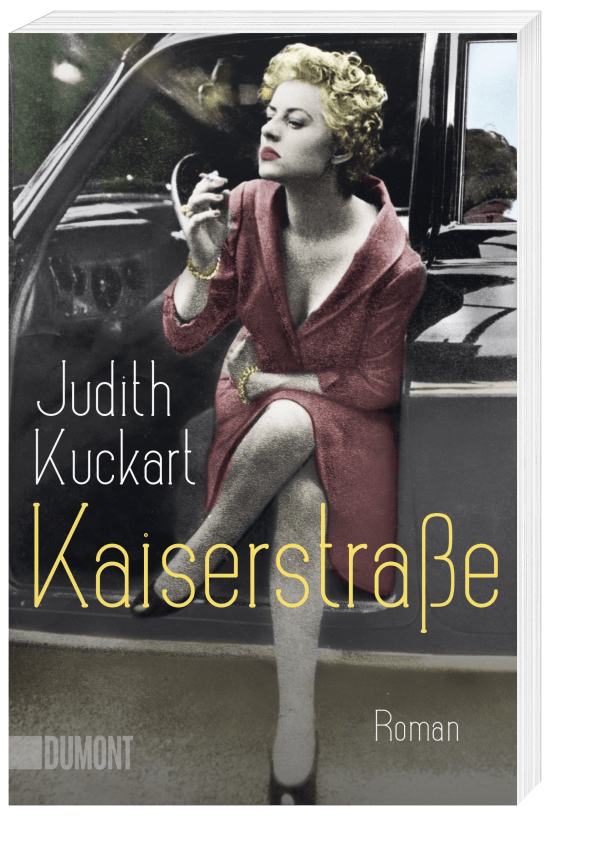JUDITH KUCKART
KAISERSTRASSE
As Leo Böwe walks through the Kaiserstraße in Frankfurt in late autumn 1957 he hears about the murder of the high-class prostitute Rosemarie Nitribitt. The name becomes firmly fixed in his mind as the name of a lover he has never met. Böwe is about to start a job as sales representative for washing machines and learns the rules of the business: “Selling starts when the customer says no.”
Ten years later: Böwe has a daughter called Jule. They don’t really get on well with each other. When Jule sees Benno Ohnesorg shot and killed on television she decides: “Daddy, when I’m grown-up, I will shoot you as well.”
Five decades long Judith Kuckart’s great novel accompanies the life of Leo and Jule Böwe. Kaiserstraße is a photo album in words, in five stages it follows the development of the two contrary protagonists and at the same time it marks five turning points in the history of the Republic of Germany: 1957, 1967, 1977, 1989, 1999. And as the country changes its inhabitants change as well. It is a fragile career – because you can sell a lot of things, washing machines as well as ideas, values and politics. In the end you can even sell yourself.
English sample translation available
KAISERSTRASSE
As Leo Böwe walks through the Kaiserstraße in Frankfurt in late autumn 1957 he hears about the murder of the high-class prostitute Rosemarie Nitribitt. The name becomes firmly fixed in his mind as the name of a lover he has never met. Böwe is about to start a job as sales representative for washing machines and learns the rules of the business: “Selling starts when the customer says no.”
Ten years later: Böwe has a daughter called Jule. They don’t really get on well with each other. When Jule sees Benno Ohnesorg shot and killed on television she decides: “Daddy, when I’m grown-up, I will shoot you as well.”
Five decades long Judith Kuckart’s great novel accompanies the life of Leo and Jule Böwe. Kaiserstraße is a photo album in words, in five stages it follows the development of the two contrary protagonists and at the same time it marks five turning points in the history of the Republic of Germany: 1957, 1967, 1977, 1989, 1999. And as the country changes its inhabitants change as well. It is a fragile career – because you can sell a lot of things, washing machines as well as ideas, values and politics. In the end you can even sell yourself.
English sample translation available
Rights inquiries
Judith Kuckart
Judith Kuckart, born in 1959, lives as an author and theatre director in Berlin. In 1986, she founded the dance theatre Skoronel, which she managed...
Judith Kuckart, born in 1959, lives as an author and theatre director in Berlin. In 1986, she founded the dance theatre Skoronel, which she managed until 1998. She published the novel 'Lenas Liebe' (2002), the short story collection 'Die Autorenwitwe' (2003), the new edition of her novel 'Der Bibliothekar' (2004) as well as the novels 'Kaiserstraße' (2006), 'Die Verdächtige' (2008 - longlisted for the German Book Prize), 'Wünsche' (2013 - longlisted for the German Book Prize), 'Dass man durch...


